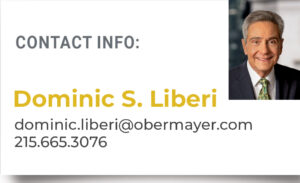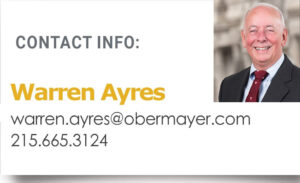Client Alert: Warning: Use of Life Insurance in Shareholder Buyouts Can be Costly
On June 6, 2024, the U.S. Supreme Court unanimously ruled in Connelly v. United States that where the proceeds of a life insurance policy owned by a corporation on the life of a deceased shareholder were paid to the company as named beneficiary, for the purpose of funding a buyout of the deceased shareholder’s shares, the fair market value of these proceeds must be calculated for federal estate-tax purposes by including the policy proceeds as an asset of the company and without claiming an offsetting liability for the company’s buy-out obligation. The net effect in this case was to nearly double the amount of estate tax due.
The case involved two brothers who owned a building supply business. Their succession agreement provided that upon the death of the first brother, the surviving brother had an option to purchase the deceased brother’s shares from the deceased brother’s estate. If the surviving brother did not exercise this option, the company was contractually required to redeem the deceased brother’s shares from the deceased brother’s estate. The company purchased a life insurance policy on the life of each brother, and named itself as the beneficiary of each policy, so that when the first brother died, the policy proceeds could be used by the company to help fund the redemption of the deceased brother’s shares.
When the first brother died, the surviving brother did not exercise his option to purchase his late brother’s stock. As required under the shareholders agreement, the company then redeemed these shares.
The deceased brother’s estate took the position that in calculating the value of the deceased brother’s shares for federal estate-tax purposes, neither the life insurance proceeds received by the company nor the company’s obligation to redeem the shares should be taken into account. The Internal Revenue Service disagreed on both points, and the IRS position was ultimately upheld by the Supreme Court. The Court determined that the company’s obligation to redeem the deceased brother’s shares was not a liability which could be taken into account in valuing these shares for estate tax purposes. The Court further determined that the death proceeds received by the company under its life insurance policy on the life of the deceased brother must be taken into account in valuing these shares.
The Court observed that the brothers could have utilized alternative methods for using life insurance to fund the shareholder buyout. In particular, the Court noted that if the brothers had used a cross-purchase agreement, with each brother owning a life insurance policy on the life of the other brother, the death proceeds of these policies would not have been paid to the company and would not have been taken into account in valuing the company’s shares for federal estate-tax purposes.
The Connolly decision indicates that great care should be taken in structuring a company’s buyout arrangements upon the death of an owner. For businesses with two or more owners which have life insurance policies in place to fund these buyouts, this decision makes clear that naming the company as beneficiary to fund a redemption of these interests by the company can have very adverse estate tax consequences.
Obermayer regularly advises its clients in drafting shareholder agreements, LLC operating agreements, and death-of-owner buyout plans to help assure that the most tax efficient structure is in place.
Contact Us:
This alert is intended to notify its readers of new developments in the law. It should not be construed as legal advice or legal opinion on any specific facts or circumstances. The contents are intended for general informational purposes only, and you are urged to consult your own attorney concerning your situation and specific legal questions you have.




